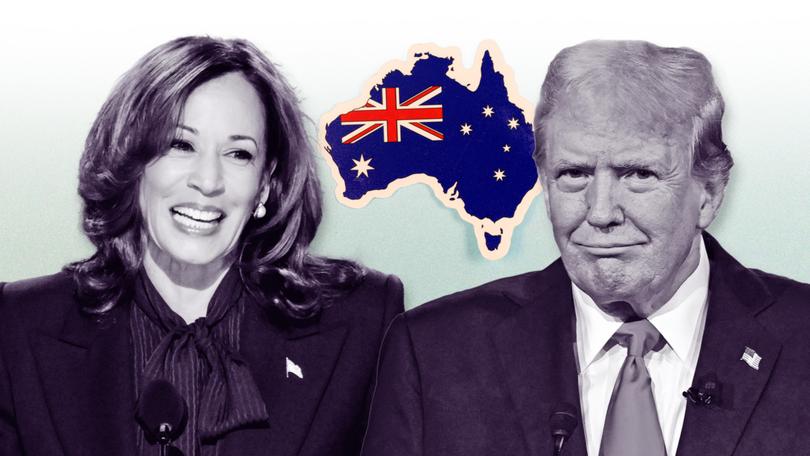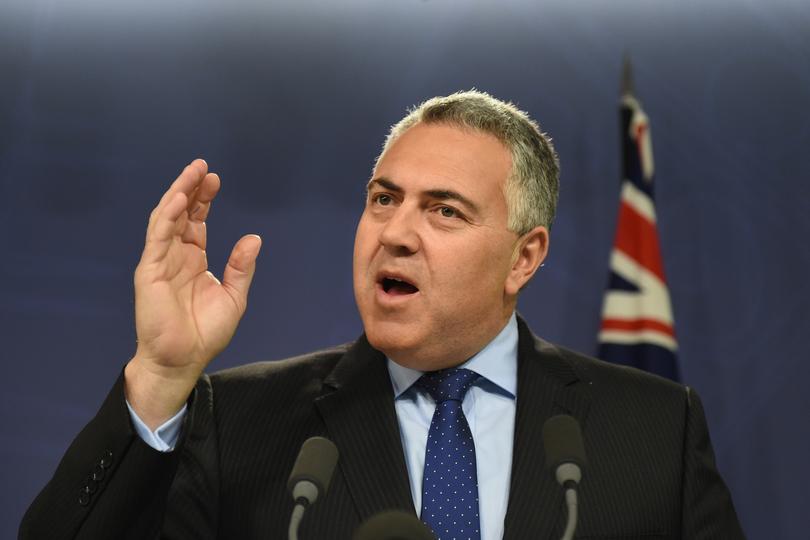SIMON BIRMINGHAM: Kamala Harris or Donald Trump? Either way, there’s work to be done
SIMON BIRMINGHAM: Australian officials must step up to the plate in defence of our interests, as those interests will unquestionably be affected by the decisions of our most important ally.

By this time next week, the seemingly never-ending festival that is a United States presidential election will be over and, hopefully, we will know the results.
Harris or Trump? Kamala or The Donald? The Veep or the former prez?
I’m tired of being asked what I think will happen. I can’t call it, and it’s not my place to do so.
Sign up to The Nightly's newsletters.
Get the first look at the digital newspaper, curated daily stories and breaking headlines delivered to your inbox.
By continuing you agree to our Terms and Privacy Policy.Of course, it matters, but my job as the shadow foreign minister, along with that of the Foreign Minister and all responsible for Australia’s foreign policy is pretty clear: to work with the winner.
Some may wish to catastrophise the result. Others may take Kevin Rudd’s advice to the doomsayers and “chill out”.
But there will be a job to be done to work with a new US president and their administration, whoever that may be.
Next January Kamala Harris or Donald Trump will take the lead of the world’s largest economy, most powerful military, a giant cultural influence, massive driver of innovation, and beacon of democracy.
Australian officials must step up to the plate in defence of our interests, as those interests will unquestionably be affected by the decisions of our most important ally.
We should engage and advocate with confidence because our relationship is strong. Labor and Liberal governments in Australia have all effectively worked with Republican and Democratic administrations in the US.
The strength in the Australia-US relationship has always — and must continue to — transcend party politics.
Our priorities for engaging with a new US president and their officials must focus on the interests most important to Australia, namely our national security and economic strength.
First among these is the alliance. For more than 70 years the ANZUS Treaty, signed by the Menzies government, has strengthened Australia’s defences by binding us each to consult on mutual threats and act to meet common dangers.
With the development of the AUKUS partnership by the Morrison government, the extent of the defence partnership between Australia and the US has only deepened in recent years.
The sharing of the most sensitive defence technologies, together with freer trade in defence equipment, helps to create the deterrence environment that makes us stronger and safer. In a more dangerous and contested world, this is as important as ever.
The alliance and AUKUS enjoy bipartisan support in both countries. A new administration should not threaten that, but just as the pursuit of peace requires constant vigilance, maintaining the strength of the alliance warrants constant underpinning.
While the alliance is a point of strong consensus, the pursuit of free trade has become an issue of greater divergence.
So much of Australia’s 30-plus years of strong economic performance can be attributed to our embrace of being an open, trading economy. The lowering of tariffs, avoidance of distorting subsidies and pursuit of free trade agreements have made our nation stronger.
The 2016 US election marked a turning point in trade in the US, where both Hillary Clinton and Donald Trump walked away from Barack Obama’s commitment to the regional Trans-Pacific Partnership free trade pact.
Since then, Donald Trump has increasingly pursued and advocated for the use of tariffs as a tool of economic policy, while Joe Biden has poured billions of dollars into subsidies.
Although there is validity in some American arguments about non-market distortions from Chinese competitors, supply chain security and incentivising lower emissions technologies, Australia should be resolute in our defence of free trade principles.
Joe Hockey and the Turnbull government secured Australia exemptions from some of the first Trump administration tariffs. As trade minister in the Morrison government, I worked with like-minded countries to protect important functions of the World Trade Organisation.

However, the Albanese Government has been more inclined to try to follow the Biden administration on industrial subsidies. Spending billions to pick winners is a risky path and, whatever the protectionist barriers, Australia should resist them in favour of openness.
The abandonment of the TPP was also a blow to US engagement in our region, especially deeper economic engagement with South East Asia. The Biden administration has sought to substitute this with the Indo-Pacific Economic Framework for Prosperity.
It is in Australia’s interests for our regional partners to have deep ties across major economies. We must actively encourage the US to have maximum openness to and economic engagement with these partners.
Similarly, we must urge continued US diplomatic efforts in our region, building on their recent embrace of policies instigated by our previous Liberal government, such as special summits with ASEAN and Pacific island leaders, and opening new diplomatic missions in the Pacific.
Just as US engagement in our region is important, so too is US leadership in the world.
With Russia and North Korea at war against Ukraine, Iranian-sponsored terrorism driving conflict in the Middle East, and China conducting unnecessarily dangerous military operations in our region, it is important that the US works with all possible partners to deter authoritarian aggression.
A just outcome that protects Ukrainian sovereignty and independence is crucial, as is the defeat of terrorists who oppose normalised relations between nations across the Middle East.
Closer to home, Australia must actively promote the benefits of our economic partnership with the US. A new administration should know that we value the role of the US as the largest foreign investor in Australia and seek further growth.
Such investment is complementary to all of our other priorities, both economic and security while being mutually beneficial to both our nations.
President Harris or President Trump? There is work to do, either way.
